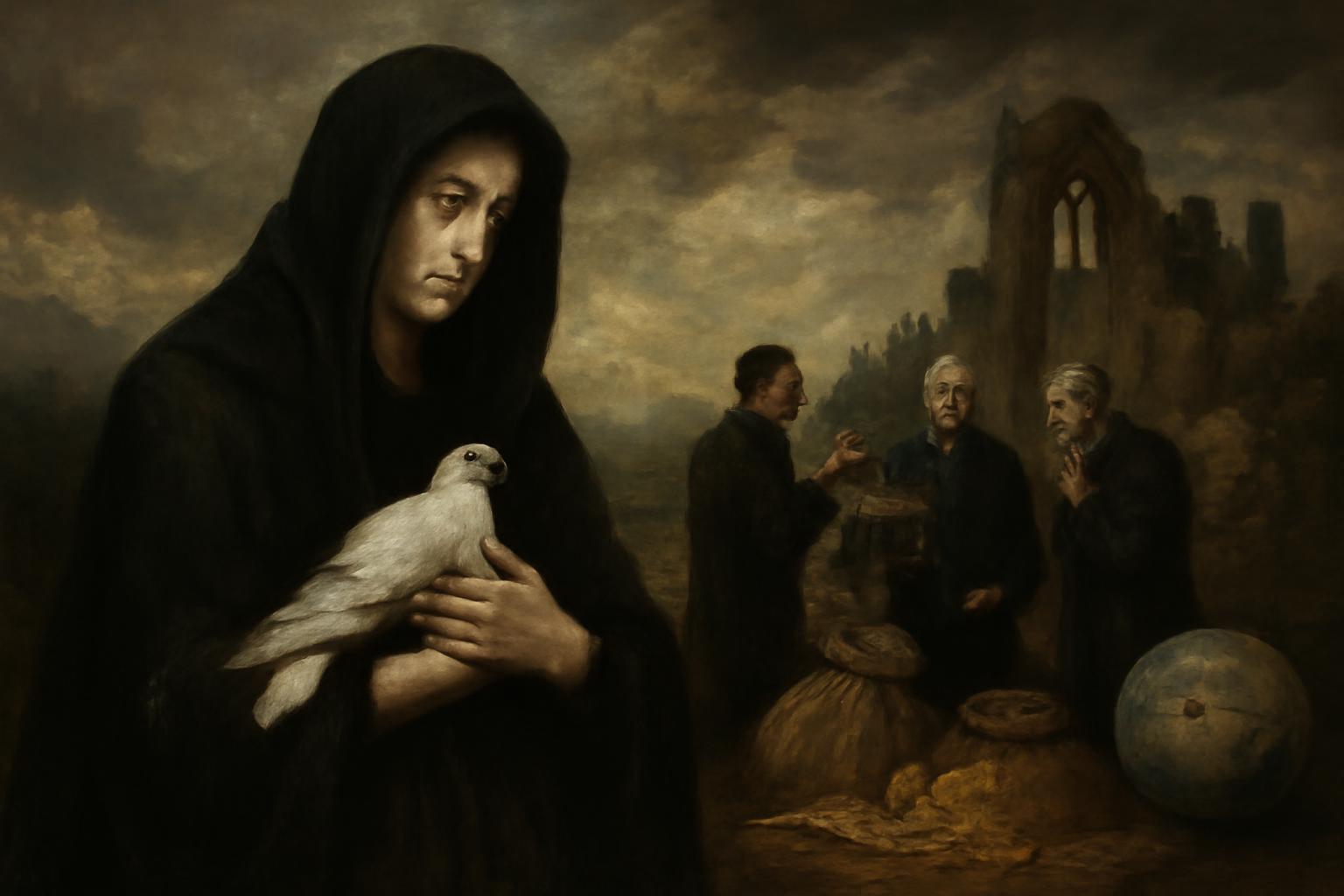In the frost-bitten corridors of Copenhagen, where glass and protocol pretend to bear the weight of the world, Europe’s council of ministers spoke in measured cadences about a future that does not know its own dawn. Peace in Ukraine, they admitted in guarded whispers, is not imminent; the land between the lines remains a stage where distant drums beat out of reach of any bargain. Kaja Kallas spoke as if reading a doomed oracle: Russia is not girding itself for peace but sharpening the edge for more war. The refrain, repeated with cautious gravity, was that the Union must keep the pressure aloft on Putin, even as consensus frays at the edges of what even unity could mean in this century of half-answers.
And yet there lay, braided into the discussion like a dangerous thread, a plan that would have seemed a gaunt reward to any statesman who remembers Thucydides: to use Russian state assets parked in European banks as a prepayment for reparations. An Eastern chorus demanded it, saying that justice cannot wait on the slow gears of diplomacy, that a debtor’s assets must be turned as collateral against the debt of a war-torn future. The rest cautioned that such a move would tarnish Europe’s reputation as a safe harbor for capital, that the credible currency of democracy is not merely in the talk of sanctions but in the tranquil trust of markets that do not tremble at the sight of blood.
Then there was the voice of Germany, a figure pressed forward by the weight of history rather than the fortune of the moment. Johann Wadephul urged a louder, more muscular aid for Kyiv—military and financial—and insisted that much of what had been promised has not yet found its way into the hands of the defenders of what remains. He urged that the question should not linger in the air as a rhetorical question but be refracted into a distressingly concrete inquiry: when might Putin be brought back to the negotiating table? A grim arithmetic in which time itself seems a weapon.
The ministers sketched the next round of sanctions as if writing in chalk on a wall that will later be erased: further reductions of Russian energy imports, and the ominous possibility of sanctions on banks. A future of coercion without a known end, a policy illuminated by the soft glow of necessity, not by the clear fire of principle.
And yet, amid these calculations, a tension with Washington cast its shadow, a reminder that the alliance is not a monolith but a maze. The EU criticized U.S. visa sanctions on Palestinian Authority officials, sanctions that could complicate the Palestinians’ chances to participate in the UN General Assembly. A fault line opened, not simply over policy, but over the stubborn pride of influence in a world where trust wears thin as old robes in a court that has forgotten how to clothe itself in integrity.
On Israel, the room bore the weight of a divided moral landscape. Ireland urged a sterner stance in the Gaza humanitarian crisis, a voice for the afflicted that would not be silenced by expedience. Yet there was no qualified majority to halt science cooperation with Israel, and Germany stood with those who opposed such a halt. The union that once claimed a common destiny now treads with the cautious grace of those who fear that to act decisively is to fracture what remains of their own legitimacy.
In these debates, one hears not merely the clamor of policy but the echo of ancient temperaments: the Greeks who watched kingdoms rise and crumble, the tragic chorus that reminds us that fortune is fickle, the Nietzschean reminder that power, when severed from wisdom, devours its own children. The European project, that noble experiment begun with the promise of peace and prosperity, seems at this moment to move like a ship without a steady course, its sails full of wind yet its hull unsettled by the undertow of history.
What is it to stand at the edge of a new coldness in which sanctions become the currency of moral clarity, where the guardians of liberal order weigh the “when” of negotiation against the cost of delay, where alliances bend under the pressure of competing loyalties? The mind recalls the ancient dramas: the moment when the chorus knows the fall of the house but cannot avert it, when the patient audience exhales in the recognition that the best of intentions can still issue in ambiguous outcomes, and when the price of enduring policy is measured not only in policy papers but in the slow erosion of shared belief.
If there is a fortune to be found in such gloom, it is in the reminder that Western culture—with its Kantian humility and its Athenian longing for rationally ordered life—has not yet learned to worship at the altars of cynicism. Yet neither has it learned to bend its will to a transcendent clarity. In the theater of geopolitics, we witness a civilization arguing with itself about when to press, whom to punish, and how to remain credible in a world that rewards both strength and virtue while honoring neither completely.
And so the night deepens. The weights of history press down upon the desks and the dreams of a peaceful continent. One hears the murmur of a chorus that knows the limits of human cunning, the inevitability of compromise, and the melancholy truth that the path to wisdom often runs through the valley of ashes. In this age, as in the great tragedies, fate conducts the orchestra, and we—fragile actors wearing the masks of statesmen—must perform with as much dignity as we can summon, even when the silence that follows is the loudest verdict of all.
